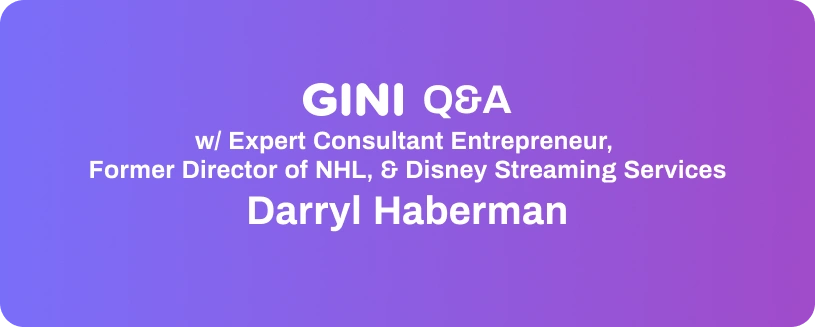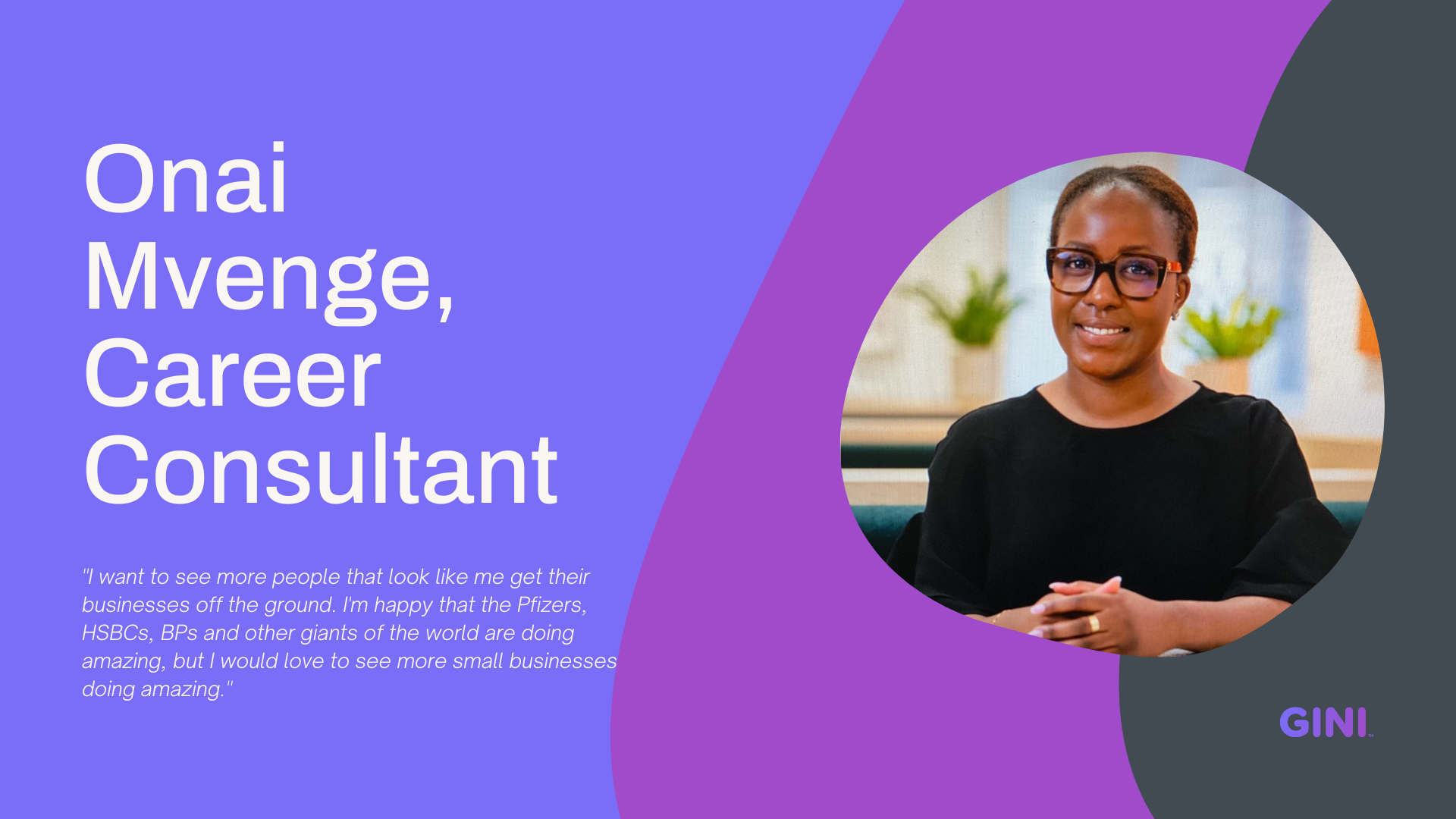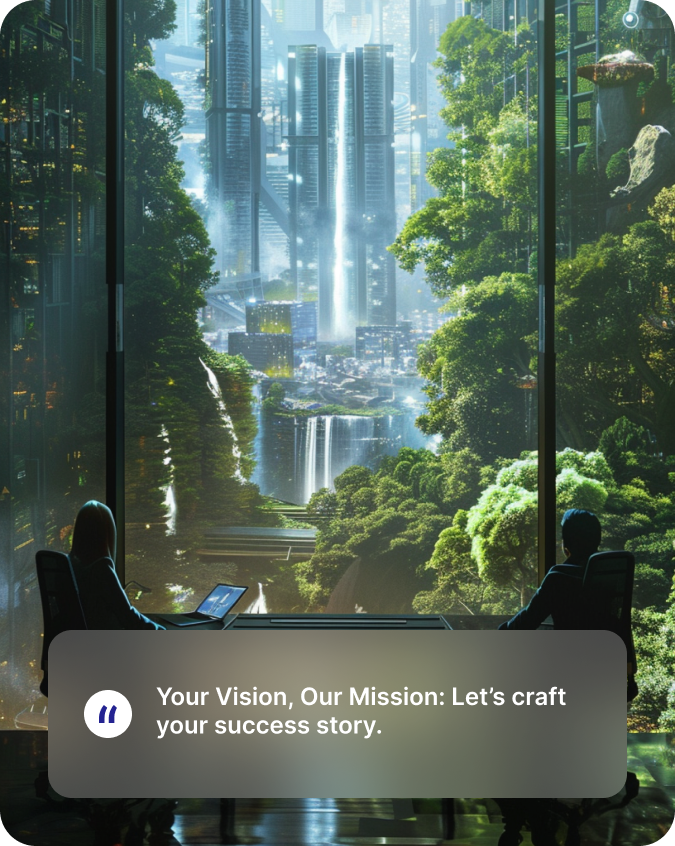Welcome to the Gini Q&A w/ Expert Consultant Entrepreneur & Former Director of NHL & Disney Streaming Services - Darryl Haberman
Q&A Article Question Index:
1. Are there any parts of your youth and upbringing that influenced your interest in business development?
2. Do you think there's any degree of importance to having a certain background in your industry?
3. Did you have any advisors or mentors at the beginning of your career?
4. What are some key aspects of business development you would recommend doing for someone who's new to such?
5. Is there anything else you would recommend doing when first starting out in business development, maybe a master class or anything like that?
6. What were some of the biggest takeaways you learned from your beginning roles that significantly helped in your future?
7. What are some of the biggest challenges you've faced throughout your career? And how did you handle them?
8. What were some of the most valuable attributions that you gained from working at both Disney and the NHL, that you've been able to apply to your own business?
9. How did you acquire your first customer?
10. What's your favorite part about consulting?
11. For anyone that's looking to start a business, do you feel they should reach any particular milestones before doing so?
12. Do you feel like there's a certain amount one should have invested in order to start a business, safety net type deal?
13. Are there any key factors that contribute to creating a valuable consulting business?
14. Are there any common qualities that successful people in your field possess?
15. Who do you look up to in your field?
16. Advice on managing work and life balance?
17. If you could tell a consulting newcomer, one niche based, very specific to your own experiences, single piece of actionable advice, what would that advice be?
TJ McHugh (GINI)
Hi
Darryl Haberman
How are you? I'm great.
TJ McHugh (GINI)
How are you?
Darryl Haberman
I'm all right. Where are you joining from?
TJ McHugh (GINI)
I'm in St. Louis, Missouri.
Darryl Haberman
St. Louis.
TJ McHugh (GINI)
You're in New York?
Darryl Haberman
Correct.
TJ McHugh (GINI)
Gotcha. Cool. Well, thanks for taking the time to meet with me today to share your experiences in your career.
I really appreciate it. Yeah. So, Gini is actually located in New York. I don't know if you knew that, but our founder Josh started the idea when he was looking for advice and didn't know where to go.
He wanted more convenient access to being able to get advice on the go of video tech, that kind of thing.
So it's been developing over the past year. I joined back in July. I've been doing articles, vetting different experts, that kind of thing.
But anyways, yeah, so I really wanted to talk to you today to get your own advice on business development and just what you could provide in terms of advice for newcomers.
So yeah, if you could talk a little bit about your career beginning, that'd be great.
1. Are there any parts of your youth and upbringing that influenced your interest in business development?
Darryl Haberman
Well, I was always pretty enterprising and industrious going back to my, youth, from you know, Mowing lawns in the neighborhood on weekends to getting
groups of people together to play pickup games, build boards, create those experiences. And I've always gotten along with everybody.
I always knew how to motivate friends and acquaintances and kind of build the community. Served on the student council in junior high school, was class vice president all throughout high school.
So from sharing, sharing in the joys and experiences with friends and helping facilitate and develop meetings, understand the art of building a business and raising funds, whether it was for charity or to give back to the school.
Like, I helped run the concession stand at the high school football games. I was always involved in some fundraising initiative, all throughout college collecting money for a good cause.
And I knew that I was successful in developing a business or helping articulate ideas and use sort of the creative and analytical parts of my brain.
I also taught swim classes. I was a lifeguard and water safety instructor. So I leaned into what I wanted to do.
And I always knew that at the end of this, there was a good sort of track record of success.
And I knew that I could lean into more of that hard business strategy and folks along the way, helping to support my agendas and my initiative.
TJ McHugh (GINI)
2. Do you think there's any degree of importance to having a certain background in your industry?
Darryl Haberman
I would say that background is not important really for anyone looking to get into business development - skills can be taught for sure.
There's, you know, prospecting for business and sort of the art of striking deals and making sure that you have woven situations is just an everyday thing for me.
I'm getting, I'm getting reverb and feedback here. I don't know if you are to teach it.
It certainly helps when your personal bowl is even-keeled and you know how to identify with certain people, what drives them and recognizing opportunities is certainly vital.
So those are skills that are a little innate, but you can learn those and you don't have to come from certain walks of life or background to appreciate and understand how business is conducted.
TJ McHugh (GINI)
3. Did you have any advisors or mentors at the beginning of your career?
Darryl Haberman
No. A lot of my experiences were just through hard work and keeping my head down. I mean, I hate using the term self-made, but a lot of what I've come
into in my career has been figuring things out on my own. I've had some bosses for sure, but no one really that would coach the advice, and mentor me.
TJ McHugh (GINI)
Cool. Yeah, I'm a big fan of self-taught stuff as well.
Anyways, so since you did it all yourself, do you feel like it was hard to kind of adapt to the professional way of living, you know, the behaviors you were gaining, that you gain as a professional?
Darryl Haberman
I'm good with the lingo, I mean, I've always been very professional with my network or people I'm talking with as a pragmatic thinker.
So, despite not having. having any real mentors, coaches or advisors, just like I mentioned, keeping my head down, volunteering, and seeing how people are talking in meetings.
I worked in a capacity at the National Hockey League where I was working with sales and marketing teams and PR and editorial teams, just even people that did the hockey operations and event planning.
So I came to understand how collaboration works and I knew that if I volunteered or I started spending more time in meetings with the same groups of people, we could potentially partner and work together.
But I definitely made friends internally who understood how I was wired, how I operated, and they appreciated my enthusiasm. And it was a service
in that we supported each other. So it became easier to leverage those experiences into the next project, the next initiative, and really band together.
That's really the art of doing business, finding real synergies and opportunities with like-minded folks, and then drawing upon what was built previously.
So how can you do it better? How could you stream on and optimize the roadmap for next time?
TJ McHugh (GINI)
4. When you were first getting into business development, was there anything that really helped you get involved with knowing people in that industry, & is there anything you would recommend in this day and age for someone who's brand new to business development?
Darryl Haberman
Well, it doesn't really matter what role you're into, but I was touching and organizing a bunch of different content and campaigns for the big league's website and all the digital properties, you know, the app, the streaming platform, what what was going out on social media.
So being able to work in a cross-functional role at a professional sports league, a big one at that.
Being responsible for much of what fans engage and interact with on multiple platforms was really, really beneficial for my career.
So, as I mentioned. collaborating as a partner with sales, marketing, product, communications, editorial, and even analytics teams made me very well aware of the big league initiatives.
And ultimately I was getting tests to help develop some best practices so that people and other departments that needed things put on the website or they were going out to a vendor or potential sponsor of content with an idea we needed to organize them, get assets, figure out who's writing these stories, how it's getting delivered.
So there were lots of departments, networks, social media, website folks, and a lot of different folks who needed assets and information and I became a true subject matter expert.
One thing that was helpful was organizing our content management system and how things were getting delivered so that it could be produced quickly.
So building out that solution and that system allowed me to really dive in deep with our content team and our overarching operation, touching so many different pillars.
Our partnership team became a little bit more suited for some of the deals as well as sales and marketing and going out with some pitches when they're engaging with potential clients.
So they knew all the particulars and my biggest advice is really learn about marketing and embracing data and digital innovation as it happens.
You could go back to sort of a tried and true formula, but you know, these things change and there are new ways to do business and optimize.
You know, not only revenue, but the time it takes to develop an idea. Mm.
TJ McHugh (GINI)
5. Thank you for the advice. Is there anything else you would recommend doing when first starting out in business development, maybe a master class or anything like that?
Darryl Haberman
I would say the answer is, you know, not really, but you want to do a lot of research and stay abreast of, you know, deal flow and
where VC firms are investing. I think that's always smart because how business is getting conducted and where a lot of capital is getting spent and raised are opportunities for growth.
Now, we've seen in this era that things can go crazy with crypto and FTX and everything like that. But you learn a lot through networking and I've taken part in plenty of startup school classes with the Y Combinator.
Some really, really smart people, people that go to some of the finest institutions always have great ideas and they're always looking to collaborate or maybe they're really tech-driven and they know how to build things but they don't know how to sell and market these ideas.
So there are lots of great people that you could talk to and things that you could pick up, pull on the way through, you know, working with people that have a vision of founding a business or, you know, some of the free programs that go on the communities that are big into accelerator programs.
Those are where I've picked up a lot of, you know, skills and insights along the way.
TJ McHugh (GINI)
6. What were some of the biggest takeaways you learned from your beginning roles that significantly helped in your future?
Darryl Haberman
The biggest takeaway I learned is there's so much that's going on that that really is busy work that a lot of people either don't enjoy or they can't support, you know, some new idea or
or even a big initiative because they don't have enough of a support system or they don't have the cleanest process.
So there's that there might be some interest in doing this, but they're sort of inundated with all the various requests and the things that are keeping them busy in work.
So my biggest takeaway was finding a way to save time and then identify how important it is to make money for a business or be able to scale up an idea.
If something is successful and easy and you could tweak and adjust it accordingly, the next time it just grows and if there's good fan engagement, things really take off. And if you're really tied to that project and you're accountable and you've orchestrated something that's been a money generator, people are gonna come back to you and you're going to really be able to climb the ladder.
So through some hard work, being industrious and versatile, volunteering, and identifying what's doing well and how it was done are really, really big takeaways that are actionable, that you could really start building your career around.
TJ McHugh (GINI)
7. What are some of the biggest challenges you've faced throughout your career? And how did you handle them?
Darryl Haberman
So we were working for a big sports league. You know, we were impacted by the collective bargaining agreement strikes and what, you know, the board of directors wanted to board a governor's the or the latest initiatives that, you know, came from the commissioner from the commissioner's office.
So I didn't always have a tremendous amount of resources. I had to be resourceful. So I, you know, the curveballs were again, trying to find people on my team that I can trust and work with.
And I was able to, you know, be that mentor. Or that guide that can, you know, help steer them away from some choppy waters.
As far as my adversity. Or things that that, you know, I took a gut punch every now and again on.
It's tough to swallow your pride or let things slide, but with the way that business is conducted and office politics and stuff, you try not to let that really wear on you.
So I always showed up with a smile and enthusiasm. I was working in the sports business. I loved hockey.
I always knew that I had what it take, what it took to thrive and survive in business. And I sort of waited patiently for some bigger wins, but I wouldn't let the small stuff really impact my work ethic and the spirit that I brought to my work product.
TJ McHugh (GINI)
8. Okay, so you talked a little bit about your time at the NHL. What were some of the most valuable attributions that you gained from working at both Disney and the NHL, that you've been able to apply to your own business?
Darryl Haberman
Yeah, certainly. So I worked with some folks that were doing more, or they're more focused on operations, or they were the program and project managers.
And I started taking on more of that work, or I was, again, more the editorial production content subject matter experts.
So I did a lot of work with the organizers in the operations or the PM roles and worked with product development teams.
And really, on some of these bigger initiatives, understood their process and what they identified, learning how valuable data was and how to stop developing state operations.
they used it to make recommendations or to go up and down the ladder of business with regard to how revenue was set up and how P&L was looked at.
So that's become quite valuable to me as a fractional COO, as someone that's working with some early-stage companies & having a better understanding of programs and processes and how they could benefit an organization through some of the work that I was doing with those teams.
TJ McHugh (GINI)
9. How did you acquire your first customer?
Darryl Haberman
Great question. I've always been big on, well, since coming and starting my practice, really ratcheting up the networking.
So I came to meet lots of people in lunch clubs, which was more of a one-on-one similar to this AI-driven platform that matches people looking to collaborate on business development, just have an interest in a conversation, share insights, and all that.
So it's very professionally oriented and someone made a recommendation for me to make a difference in the way that I'm doing to go and check out some of the school activities to try and get matched with a co-founder to people, someone that saw business and understood what I had to offer my value prop. And that's how I actually got quite a few clients, other co-founders that I met, other people that were enterprising had just left corporate America or a job at a private firm, but they were really interested in starting a new business and going off on their own.
So knowing what's, you know, soft and hard skills I had allowed me to, you know, partner and consult as a strategic advisor, some of these, you know, founders of businesses, some of them were onto their third or fourth business.
They understood what it took, but they really, as I mentioned earlier, were focused really more on the technical side and they needed it, and they were also someone that had, you know, the editorial and marketing
chops that I did that knew how to really work cross-functionally across various departments or skills to really optimize a business and bring it all together.
TJ McHugh (GINI)
10. Awesome. So what's your favorite part about consulting?
Darryl Haberman
The freedom and flexibility in working on any project at a given time is really appealing to me.
I enjoy the diversity, I enjoy talking and learning about opportunities and it doesn't take away from the current work that I'm doing on behalf of a client or like it would have maybe in the corporate sector.
So the consulting, I found some good accountability partners and people that I can work with and they've gone through some of the build-it-out processes of their business, their practice.
And I can lean on them or where they're they're going to come to me and want me to share some of the practices or how I'm going about my business because they see that I'm successful.
So there's lots of that in the consulting space that wasn't as abundant in my corporate roles.
TJ McHugh (GINI)
11. For anyone that's looking to start a business, do you feel they should reach any particular milestones before doing so?
Darryl Haberman
Yeah, so I think you know they've had to have gone through you know quite a good amount of experiences both positive and negative.
In business for, you know, I would say, you know, at least 10, 15 years, climbing the ladder, knowing how to work and get to the C-suite level, be a senior leader, someone that's recognized and accountable before, you know, venturing off on their own and trying to own or start a business.
Because it definitely takes plenty of wear with all, not just, you know, your mentality, but, you know, to be in a good sort of financial position or a good place to, you know, start a practice.
And I think, you know, the younger you are unless you really, you know, had some great opportunities or you're one of the few, you probably don't have, you know, a lot of money in the bank or experiences to draw upon is really attractive to potential clients.
TJ McHugh (GINI)
12. Do you feel like there's a certain amount one should have invested in order to start a business, safety net type deal?
Darryl Haberman
Yes. I mean, there's no magic formula on this one. You know, some people, you know, do, get lucky or have fortunes that they create for themselves.
But there's definitely importance around investing in yourself and taking some strategic risk. Whether that's, you know, $1,000, $15,000 or something like that, there's
very, very varying answers. You've got to leverage your network and play connect the dots to do business and operate efficiently.
TJ McHugh (GINI)
13. Are there any key factors that contribute to creating a valuable consulting business?
Darryl Haberman
So yeah, you've got to be heavily organized and really maximize your time, because as a solopreneur or person that is starting a practice, you usually need to start making investments or start working with someone that can help you with scheduling meetings or the books such as a virtual assistant.
There are plenty of digital marketing things that you can do. Or as I mentioned networking, networking takes time. There are only limited hours in the day.
So with folks like me, a lot of consultants work from home or in a shared office space. And then there are other logistics in the way that, you have families, commitments that happen with wives, kids, spouses, boyfriends, girlfriends, and other social events.
But you really need to be open to good opportunities that can help in the cash flow and the revenue side.
So... If you're working on something and need to pivot because it's not really attractive, you have to really be flexible and adjust.
So I would say that, you know, that's an essential component is being nimble and agile and having the right resources in place and that comes down to how you how you're organized systems and solutions you have for your practice that's going to benefit you in the long run.
TJ McHugh (GINI)
14. Are there any common qualities that successful people in your field possess?
Darryl Haberman
Yeah, I mean, I'm finding more and more people are using a virtual assistant or they have some level of automation, whether it's a CRM or some piece of software that's helping them get to share some updates with their clients or prospects and really opening up some time so that they could really focus on the things that are meaningful to their business.
TJ McHugh (GINI)
15. Who do you look up to in your field?
Darryl Haberman
No, I mean I don't know if they're necessarily a consultant but like, you know, I really like, you know, the Vaynerchuk brothers and the enterprise that they built, how they go about business, something inside of them that they share.
Obviously they're very, very successful. They essentially have a holding company of other businesses. So I respect that and I look up to that.
I'd love to get to that level of success where there's lots of, you know, different entities that I can control and help organize.
TJ McHugh (GINI)
16. Advice on managing work and life balance?
Darryl Haberman
Yeah. Definitely try and take as much time on the weekends to not work. That's usually when some good, good family opportunities are.
And, you've got to value your mental health. So when I organize my meetings throughout the week, I generally try and keep as much of Friday open because there are lots of
plans around the weekend, and it's when I need to kind of recharge a little bit. Doing follow-up work, and making sure that I'm spending time on my practice is important.
So, there's always plenty of work to be done. And you can stay up late and do 16-hour days.
But that's why it's important at the end of the week to spend some time, have some fun, and sort of recharge for Monday morning.
TJ McHugh (GINI)
17. Great advice. One last question: If you could tell a consulting newcomer, one niche based, very specific to your own experiences, single piece of actionable advice, what would that advice be?
Darryl Haberman
I mean, I really am big into, you know, experiential events, like some immersive event that's really engaging in the sports community that I do work in and I came up through is super attractive right now.
You know, there's so much opportunity with the creator economy. Everyone thinking about the web three, some of the niche sports and sort of the real globalization is some of the European sports even come into America, rugby cricket, formula one racing So, I think sports is the ultimate drama, even entertainment, you know, virtual reality and some of these real augmented experiences that allow fans to, you know, share some fun experiences this with athletes and teams. I'm working on several clients in that space and I think there's a real right economy for incentive programs and real opportunities to do some fun collaborations and be revenue wins for brands and companies in addition to what they're going to reward people that do some programs and have some original thoughts and ideas.
So there are so many win-win collaborations that I'm seeing in that space. And as you know, with sports and music, even gaming, there's the more immersive experiences that can the easier to get sticky and build something around an audience. And I think getting involved now for anyone that's looking to consult in a certain niche, to me, there's just so much growth and opportunities in those sort of the sports and entertainment, the full on experiential events that are happening around the globe.
TJ McHugh (GINI)
That's great. I really appreciate everything that you've provided today. All of the personalized experiences, and different situations you've brought about. That's all of my questions.
Love everything I learned today, super happy to talk to you.
Darryl Haberman
Thanks. Well, yeah, thanks TJ. And yeah, please let me know if there's anything you're interested in going further into. I'm happy to help and bring my value to Gini.
TJ McHugh (GINI)
Yeah.
Darryl Haberman
Okay. So, yeah, very good. Have a good rest of your day and we'll talk again soon.
TJ McHugh (GINI)
Sounds good. Thank you. Bye.






